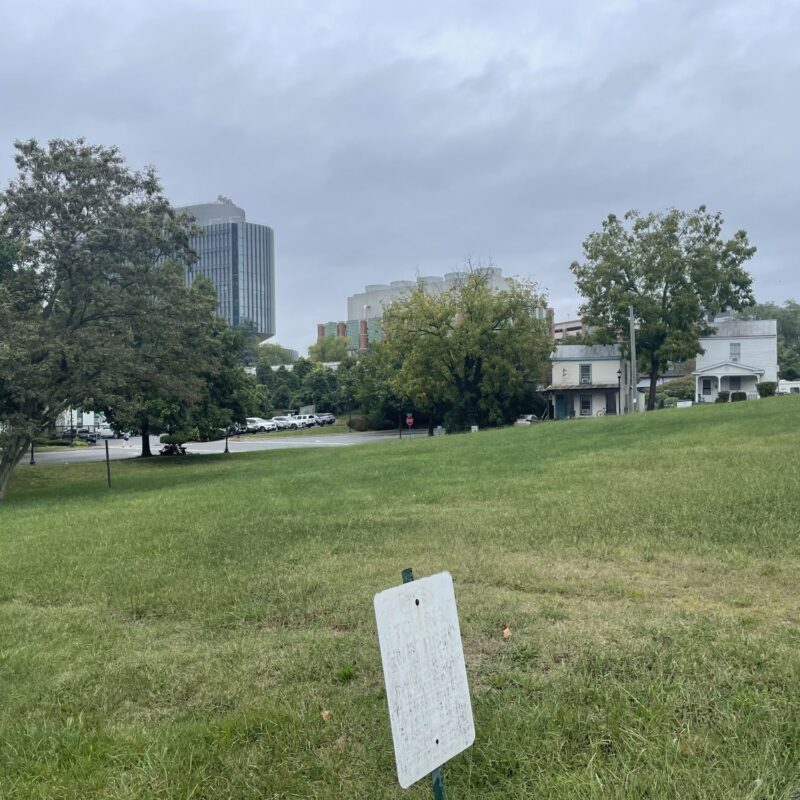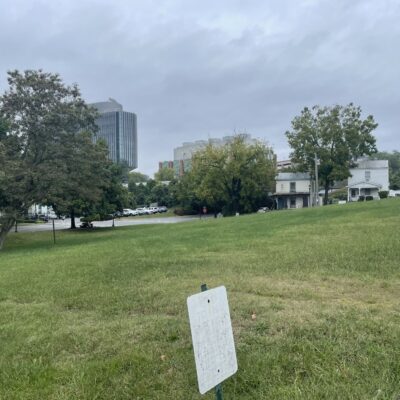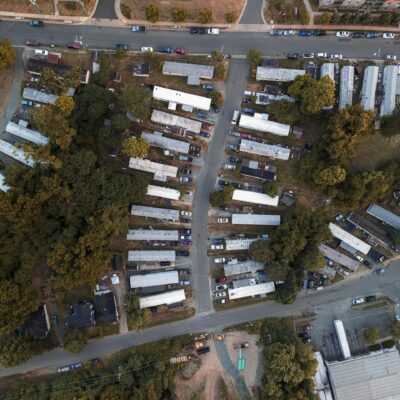Tomes have been written about the similarity between the camera and the gun. The word “shoot,” though, serves as shorthand for the whole comparison: Applied to both instruments, it sums up the way a person can become a predator when carrying a tool that works swiftly and suddenly. For a photographer, the risk is magnified when working outside of one’s own community.
Will Kerner’s show at McGuffey is the result of his visits to two markets, one in Brazil and one in Tanzania. His photos are lush records of colorfully worn places—fish stands, alleys, bars—and the human beings who animate them. The figures are often placed in the corner of the frame, or at the very edge, in chaotic compositions; their environments jangle around them. Kerner, à la Walker Evans or Garry Winogrand, often mines the ironic juxtapositions of commercial signage with real life—as with the two identical posters of a grinning politician hung above three people, who are sitting on seats with the upholstery worn off, near a pile of plantains. Beauty and decay are striped, layered, interwoven: A flying pigeon blurs against a worn concrete wall and a rickety window cage, the colors and shapes sliding toward the abstract.
 Lost in the supermarket: Local photographer Will Kerner negotiates cultural dissonance with his camera in a new set of photos from the streets of Tanzania and Brazil at McGuffey Art Center. |
In the visitors’ book set out on a pedestal, one viewer has drawn a line in the sand: “All of these people are ashamed of their poverty and do not like having their lives invaded.” It’s impossible to know whether that’s true, and the statement strikes me as the codification of a nebulous unease: What is behind the face of the mechanic Kerner photographs sitting on the edge of a bathtub, his look skeptical, not at all friendly but entirely engaged? What was the interaction that led up to this single recorded moment? Was it the exploitation of prey by predator, an exchange between equal collaborators, or something in the middle?
Kerner and his subject know the answer—and their versions may differ, of course—but we don’t. We just run our eyes over the rubbed, chipping paint on the wall and the grimy bathtub, and we keep meeting the gaze of the mechanic, who knows nothing of us or where we are standing. Cameras make us into voyeurs every day of our lives, but that position still has the power to unsettle.





